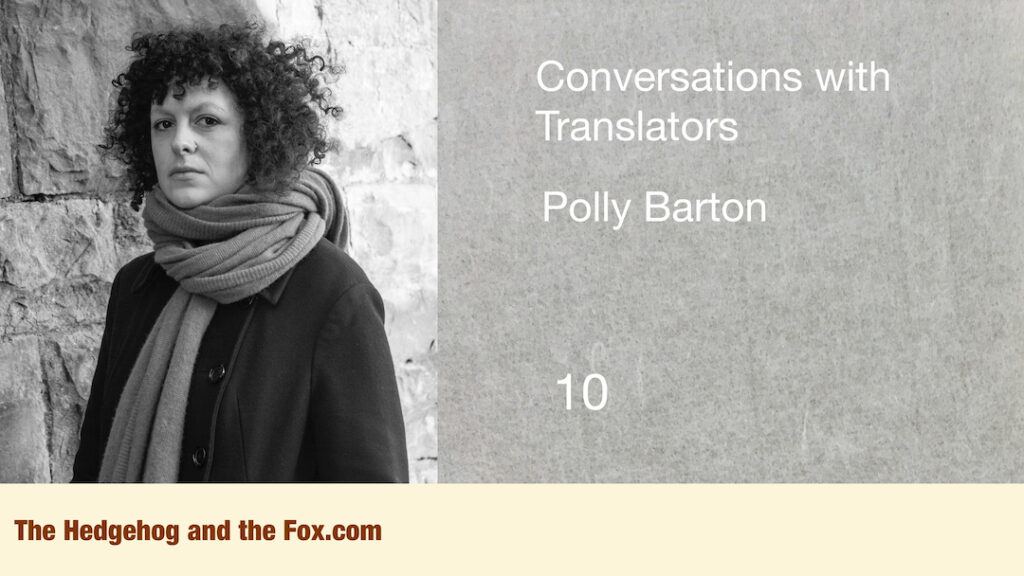
This episode is part one of a two-part conversation I had last autumn with Polly Barton, a translator from Japanese and the author of Fifty Sounds, which was one of my favourite books of 2021. I was certain I wanted to read Polly’s book the instant I heard about it: a memoir-cum-reflection on Japan and Japanese and language and sound and translation that was structured around fifty different onomatopoeic words in Japanese that had particular resonance for Polly and were part of her discovery of the country and its people and language. I couldn’t wait.
And the book turned out to be poignant and funny and reflective and always fiercely intelligent and honest: as well as looking outwards to the new people and culture she was encountering, Polly also looks inwards, to examine her own response to what she was experiencing. In some translators’ published reflections on translation, acquiring mastery of a foreign language happens off-stage, it’s almost taken as a given. Not so with Polly; she’s frank that learning Japanese is hard (how could it be otherwise with three different alphabets, thousands of characters, manifold subtleties of grammar and register to grapple with?), it’s a process fraught with confusion and missteps and hidden traps. I suspect Polly would reject the very term ‘mastery’ as an illusion. She writes:
Perhaps it is the fate of language-learners to seesaw between these two states: between thinking that learning is not only something doable but something we are actually doing, and thinking we will never ever get there, with which side we fall on depending really on nothing more than how high our stakes of confidence are running.
Fifty Sounds, p. 252
In this first part of our conversation, we talk about Polly’s early fascination with Japan and how she found herself on a remote Japanese island at the age of 21. ‘Sometimes’, she writes, ‘I wonder how I ever thought I’d survive, setting out for a rural island with just a handful of Japanese words to my name.’ But survive she does and goes on to tell the tale.

And then in part 2 we talk mainly about becoming a translator and writing her book. But we began our conversation in Polly’s school days. One year, her school decided to offer optional after-school Japanese classes. The classes proved hugely popular, yet Polly did not sign up, despite already having been ‘captivated by Japan’, as she puts it, for numerous years. The after-school classes she associated with ‘little origami frogs’ and a certain idea of Japan that she wanted nothing to do with.
